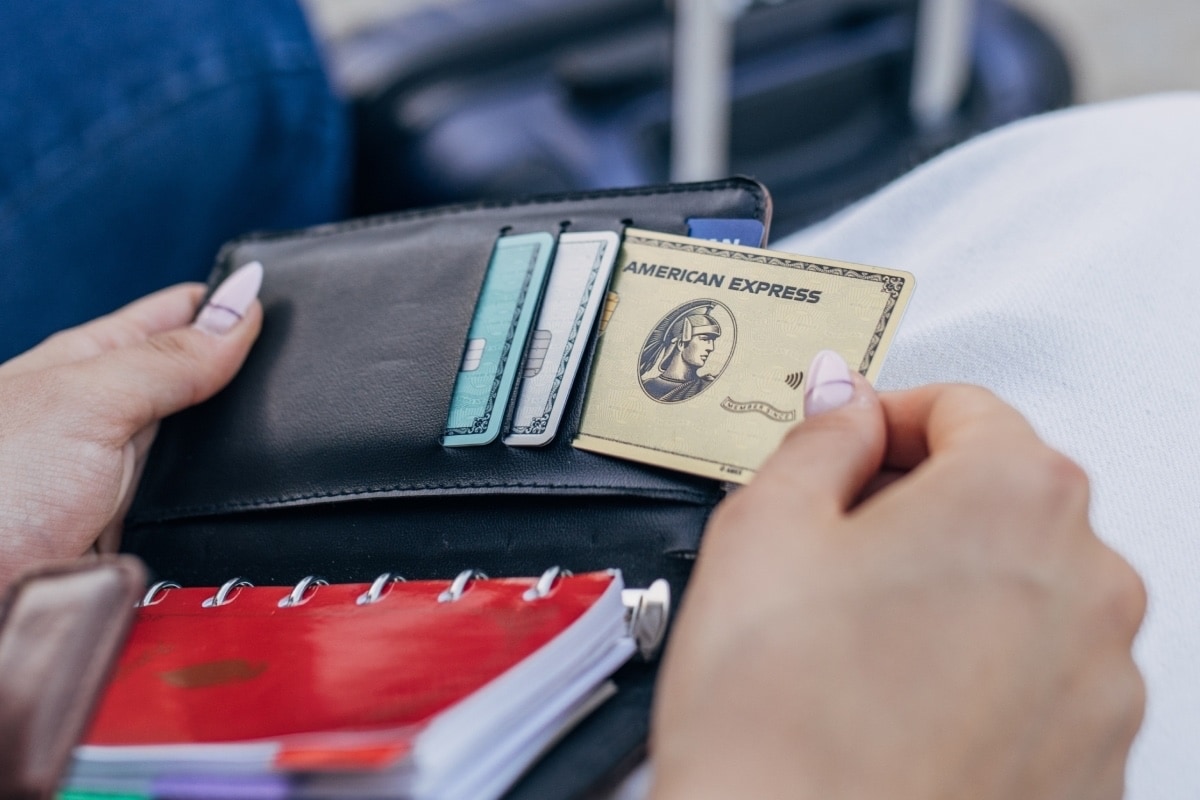Can You Buy a Money Order With a Credit Card?
5 Min Read | Last updated: January 7, 2025

This article contains general information and is not intended to provide information that is specific to American Express products and services. Similar products and services offered by different companies will have different features and you should always read about product details before acquiring any financial product.
Learn whether you can buy a money order with a credit card. See how to go about buying a money order and what you should know if you're planning to buy one.
At-A-Glance
- A money order is a payment method that can enable you to transfer money securely from person to person or make payments for bills and other expenses.
- Credit cards may not be accepted as a form of payment for money orders.
- You may be able to pay for the money order with your credit card by taking out a cash advance. However, cash advances can be costly, so make sure you carefully consider their pros and cons before taking one out.
Even in today’s era of digital payments and mobile apps that transfer money instantly, money orders are still used and issued by most banks, some retailers, and the U.S. Postal Service. You may not be able to buy a money order with a credit card, but you may be able to obtain one using a cash advance or another form of payment. In this article, we’ll uncover how money orders work and show you how you can go about obtaining one.
What Is a Money Order?
A money order can offer a way to make secure payments that aren’t tied to a checking account.1 Money orders can be a useful form of payment in some situations, and you can use them instead of cash or check to make purchases or transfer funds.
How Does a Money Order Work?
Money orders can be issued by your bank or credit union. You may also be able to obtain one at select retailers, convenience stores, and even the post office. Money orders often have a $1,000 limit, but you’ll want to check with the issuer to see what their limit is.2
To obtain a money order, you may need to present identification. You may also need to supply information about the purchaser (yourself) and the recipient and fill out the amount that is being transferred. You may need to pay the amount that you’re planning to send along with any relevant fees. Finally, you’ll want to sign and date the money order.
Can You Pay for a Money Order With a Credit Card?
Paying for a money order with a credit card may not be allowed, as companies may require a debit card or cash payment. However, you may be able to pay for a money order using your credit card by obtaining a cash advance. Keep in mind, though, that you may have to pay cash advance fees and higher interest rates. Be sure to check your credit card provider’s policies to see what fees and charges you may be responsible for if you obtain a cash advance.
How Much Does a Money Order Cost if You’re Using a Credit Card Cash Advance?
Paying for a money order with a credit card cash advance can incur higher costs due to additional fees.
Here are some fees and charges that you may need to pay if you use a credit card for a money order:
- Cash Advance Fees
Cash advance fees can be 3% to 5% of the transaction amount.3 - Interest
Cash advances may have higher interest rates, with interest accruing immediately. - Location Fees
The location selling the money order may also charge a fee, which could range from $1 to $5, depending on the location.4
Using a credit card for a money order can be more expensive than using cash or a debit card.
Money Order Alternatives
If you’re considering a money order, you may want to consider whether alternative options are available. In some cases, opting for an alternative form of payment could prove to be more cost-effective and a better fit for your needs. Here are some options to consider:
- Cashier’s Check
One popular alternative to a money order is a cashier’s check, which is a secure, bank-issued check that also guarantees funds. This form of payment can be used for larger transactions. - Electronic Funds Transfer (EFT)
Another option is electronic funds transfers (EFT), such as wire transfers or services that may allow for direct transfers between bank accounts, which could be faster. It may also be more cost cost-effective than buying a money order using a cash advance. - Certified Checks or Personal Checks
Certified checks or personal checks, especially for transactions with known and trusted parties, could be another cost-effective alternative to buying a money order with a cash advance.
Frequently Asked Questions
The easiest place to get a money order depends on convenience, location, and cost. Post offices can be reliable, widely available, and offer low fees, making them a popular choice. Some credit unions and banks may also issue money orders, though fees may vary, depending on the financial institution. Some convenience stores may issue money orders as well.
Money order issuers may only accept cash or debit as payment. If you’d like to pay for a money order using a credit card, you may be able to take out a cash advance. However, keep in mind that your credit card issuer may charge a cash advance fee and a higher interest rate. It may be best to check with the location you plan to purchase from to see what forms of payment they accept.
Credit cards may not be accepted as a form of payment for a money order. If you are using a cash advance to purchase a money order, you may not be able to earn rewards or cash back on this transaction.
The Takeaway
Money orders are widely available and can be useful alternatives to cash and personal checks. However, issuers may not allow you to buy a money order with a credit card. If you opt to do a cash advance to pay for the money order, the cost can be higher. If you need a money order but have another way to pay for it, you may be better off keeping your credit card in your wallet.
1,4 “Can You Buy a Money Order With a Credit Card?,” Experian
2 “What’s the Difference Between a Money Order and a Cashier’s Check?,” Experian
3 “What Is a Cash Advance Fee on a Credit Card?,” Experian
SHARE
Related Articles
How Much Should You Save Each Month?
How much you should save each month depends on your income, expenses, and savings goals. Many financial experts recommend the 50/30/20 budget rule as a good start.
Holiday Shopping Trends and Predictions
Explore popular holiday shopping trends, including immersive digital experiences, local business support, and an ever-increasing rise in mobile shopping.
‘Level Up’ Your Understanding of Amex Card Levels
American Express Card ‘levels’ are more like unique categories to match your spending style, from casual spender to luxury traveler – and everyone in between.
The material made available for you on this website, Credit Intel, is for informational purposes only and intended for U.S. residents and is not intended to provide legal, tax or financial advice. If you have questions, please consult your own professional legal, tax and financial advisors.










